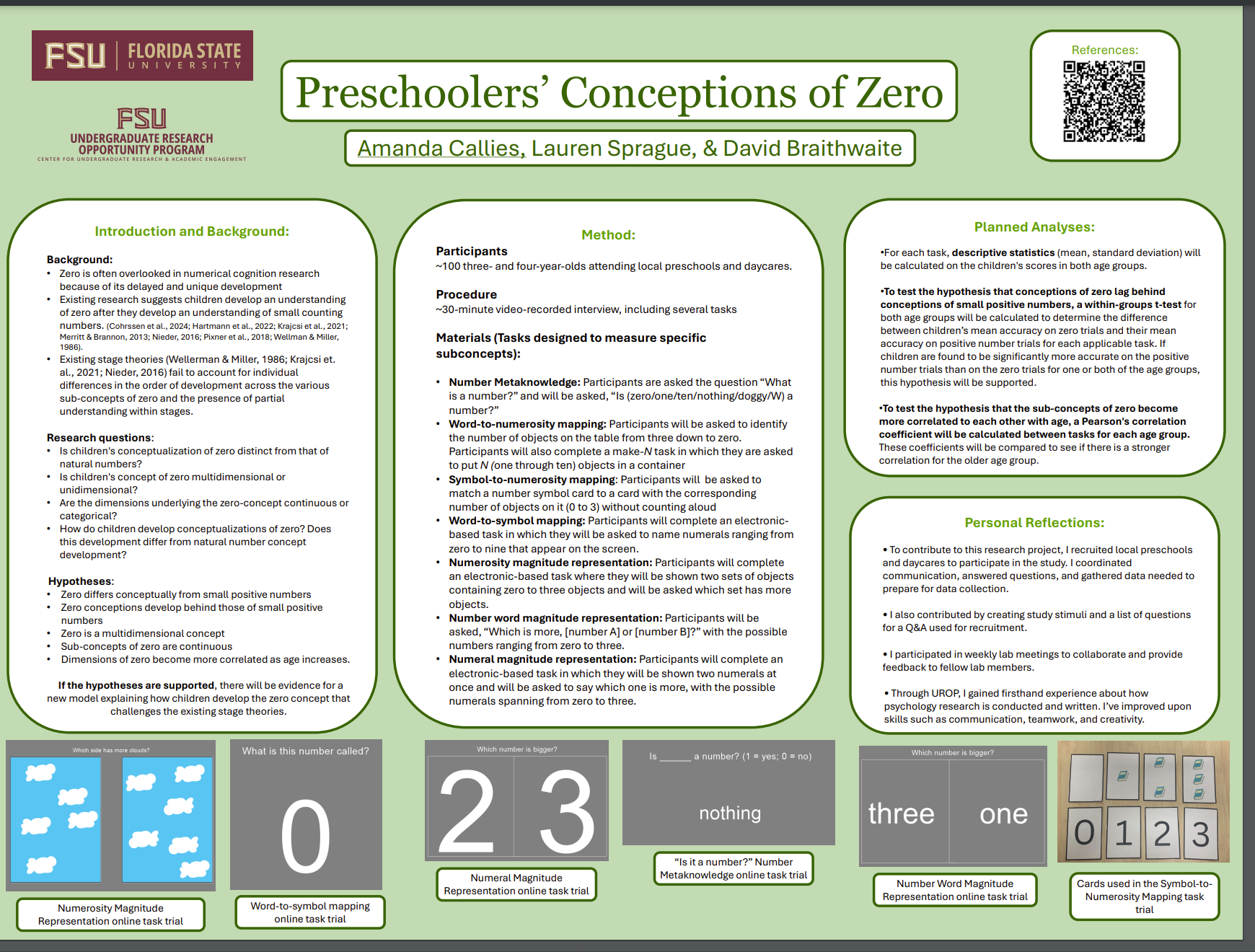Research Symposium
25th annual Undergraduate Research Symposium, April 1, 2025
Amanda Callies Poster Session 2: 10:45 am - 11:45 am/ Poster #12

BIO
Amanda Callies is a first-year undergraduate student pursuing a major in psychology and minors in linguistics and child development. She is currently a UROP research assistant working on a project in developmental psychology about numerical cognition, specifically focusing on the number zero. Her personal area of interest for future research is the effect of digital technology on language and emotional development in children and adolescents. Here at FSU, Amanda is involved in Psych Club.
Preschoolers' Conceptions of Zero
Authors: Amanda Callies, Lauren SpragueStudent Major: Psychology
Mentor: Lauren Sprague
Mentor's Department: Department of Psychology Mentor's College: College of Arts and Sciences Co-Presenters: NA
Abstract
This research aims to investigate how children develop the concept of zero, the different dimensions of this conceptual development, and how this development differs from the development of small natural numbers. To test the development of the zero concept, three- and four-year-olds will be individually interviewed and complete a series of tasks both using a computer program and physical objects. These tasks are intended to test various dimensions of the zero concepts. They include: what is a number, is it a number, how many, make-N, which number, symbol naming, non-symbolic magnitude comparison, verbal magnitude comparison, and symbolic magnitude comparison. We predict that children’s concept of zero develops independently from concepts of small natural numbers. Further, we hypothesize that the zero concept is multidimensional and continuous (children learn the different components of the zero concept in no set order) and that these dimensions become more strongly correlated with age. We will preliminarily explore these hypotheses by calculating descriptive statistics, t-tests, and correlation analyses. If the hypotheses are supported, there will be evidence for a new model explaining how children develop the zero concept.
Keywords: zero, psychology, cognition, developmental, numbers

